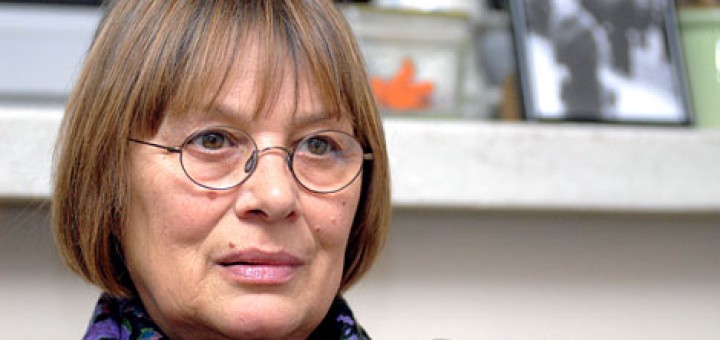
09.08.2016.
Acknowledging Genocide Is a Moral Prerequisite for Reconciliation
nataša kandićI was shocked that Minister Dačić, a former close associate of Slobodan Milošević and a member of the party which itself bears responsibility for the bombing of the country, dared to say that the time had come to re-examine the responsibility of NATO member-states for the 1999 air campaign against the SRJ.
Hashim Tachi laid flowers at the memorial plaque commemorating the victims from Stari Gracki on the 16th anniversary of the crime, but that has not resonated as a “key to reconciliation”. However, it is important to note that there has been no outcry in Serbia along the lines of, “Who is he even to speak about our victims?, etc.”
I was surprised by Tachi’s words. He did not say: “I lay this wreath of flowers and dedicate it to the Serbian victims, and I expect the Serbian Prime Minister to follow suit and pay his respects to the Albanian victims.” He has indeed made a step forward, ahead of both the Serbian Prime Minister and President, who also claim to respect the victims from other ethnic groups, but only “under the condition that those other groups recognize and show respect for the Serbian victims.” To be fair, all former representatives of Serbia, be they presidents, prime ministers or MPs, have also refused to draw on the factual experiences of some successful transition processes from the past, all of which imply that facing the past cannot begin without “unconditional recognition of all the victims from other ethnic groups”. Let us just recall the Declaration on the Recognition and Respect for the Victims of Srebrenica (March of 2010), immediately followed by a declaration denouncing the crimes against the Serbian people, and then the appeals to the parliaments of neighboring states in the region to condemn these crimes and pay their respects to the Serbian victims (October of 2010).
There is a site in Serbia which, as we now reliably know, is the location of a crime perpetrated against three ethnic Albanians – all of whom, according to both international and domestic laws, enjoyed protected persons status. The name of this place is Petrovo Selo, a police compound where the three Bytyqi brothers were executed. But there is no memorial plaque in Petrovo Selo describing how these three young men, all of them US citizens of Albanian origin, were shot dead under orders that had come from the highest Serbian authorities. They came to the country to help a Roma family which had found itself in danger cross into Serbia from Kosovo. Even though 17 years have passed since the murder of the Bytyqi brothers, it is still not too late for the President or the Prime Minister, or perhaps both of them, to lay a wreath of flowers at the site of their execution and its subsequent cover-up. This would be best performed in silence – says Kandić (former Executive Director of the Humanitarian Law Center) in an interview for Danas weekly.
By: Snežana Čongradin
What is the EU’s role in this process? Is the criticism that such acts are forced at all founded? Are the political leaders in the Region really being forced to do all this – or, to paraphrase the question, would such acts never have occurred had it not been for the European integration process and the EU’s demands that the Region face its past and thus achieve true reconciliation?
– Actually, the EU doesn’t have a strategy for reconciliation in post-conflict societies, including those created by the breakup of the former Yugoslavia. For a time, while the Hague Tribunal was still conducting investigations into the crimes, the EU was demanding cooperation with this court as a pre-condition for any progress in the accession process, but only at the level of specific deeds (the arrest and transfer of all the accused, the handover of relevant police and military documents, the ensuring that the witnesses summoned appear before the court, etc.). All of the accused have now been transferred, their trials are underway before the Hague Tribunal, and it seems as if the EU has sent a message to the political leaders in the Region that “dispensing criminal justice was now solely in their hands”.
Is this constant demand – I will acknowledge your victims if you acknowledge mine – a normal situation which could lead to true acknowledgment and recognition?
– Serbian politicians – and I am primarily talking about the Prime Minister, the President and the Minister of Foreign Affairs, since they appear in the public sphere the most – have to learn from the experiences of others, they have to understand that acknowledging and showing respect for victims from other groups is also an acknowledgment of their lives as being equally precious. The public in the Region has seen through Serbia’s ploy to shift the responsibility for the war and redistribute it equally – nobody will agree with that. We already have court-established facts about the responsibility of numerous Serbian generals, including that of the war criminal Vladimir Lazarević, which (albeit indirectly) speaks volumes about the responsibility for war crimes of the Serbian institutions of state. Serbia therefore must accept the fact that it alone has to bear the heavy burden of its past. Thousands upon thousands of victims lost their lives at the hands of members of the Serbian MUP or JNA/VJ. These facts cannot be changed, but we have yet to draw certain lessons from them.
It seems fairly apparent that Serbian officials are more inclined to acknowledge and, more or less, treat the Bosniak victims with more compassion than the Albanian victims from Kosovo. Why is that the case?
– It is true that the representatives of Serbian institutions show compassion for Muslim [Bosniak] victims, while their demeanour towards Albanian victims remains cold and often unpleasant. For them, the lives of Albanian victims are worth less than those of Serbian or, for that matter, Bosniak victims – and this is something that can be felt in the statements made by Serbian politicians. Of course, nobody is saying out loud, “They should all have been killed”, but I always suspect that that is precisely what goes on in their heads.
How would you comment on Ivica Dačić’s expectations that the responsibility for the 1999 bombing of SRJ will be re-examined?
– I was shocked that Minister Dačić, a former close associate of Slobodan Milošević’s and a member of the party which itself bears responsibility for the bombing of the country, actually dared to say out loud that the time had come to re-examine the responsibility of NATO member-states for the 1999 air campaign against the SRJ. This statement of his scares me. It is almost as if he has assessed that the time is ripe for some “historical revisions” to be made. When someone like Palma says it, the statement has no weight at all; but such a statement coming from Dačić is dangerous, particularly if we take into account that Serbian politicians have been able to create the public impression that the country was bombed unjustly, and that thousands upon thousands of people were killed during the air campaign. Never mind the fact that, at least once a year, the HLC publishes the names of each of the 758 individuals who lost their lives in NATO airstrikes (in Serbia and Kosovo). Of course, the majority of them were members of the VJ, but the total also shows that 104 of them were young conscripts who died at Košare. That is why the debate about NATO’s responsibility needs to be opened, among the civil society for certain, and – why not? – perhaps even in the Parliament as well. Immediately following the events of October 5th, there was talk of responsibility for the bombing of the country, but within the context of Slobodan Milošević’s responsibility, and that of the generals of the Serbian MUP and VJ. But, all of that ended rather quickly. My conclusion is that the generals simply overpowered the fragile voices pointing to their responsibility. In time, the generals regained their power and hero status – moreover, they even managed to convince the parents of the conscripts killed at Košare that the KLA and NATO were the ones to blame for their sons’ deaths, rather than those who actually gave the order to sacrifice these young men, who were barely older than boys.
Over the course of the process of opening negotiations on the first accession chapters between the EU and Serbia, Croatia kept demanding that Serbia abolish its Law on Universal Jurisdiction for War Crimes. However, the EU stated that this Croatian demand would not be part of the negotiations with Serbia. The sparks and tensions over this law continue to plague relations between Belgrade and Zagreb to this day. What is your comment?
– The Croatian Government has the right to demand the abolition of any controversial law, but, in this case, it lacks the proper arguments. The former Croatian President Ivo Josipović could be of help to both the Croatian and the Serbian side in resolving this issue.
Why, then, has the EU sided with Serbia on this issue, rather than with Croatia?
– With the whole Brexit situation, the EU has had to make a show of force and determination. The option to open negotiations with Serbia came in handy. Quite apart from that, the EU has to put an end to the standstill in the dialogue between Serbia and Kosovo. That is where Aleksandar Vucic is essential, in spite of his, at times, rather non-diplomatic conduct towards some EU representatives.
The Mothers of Srebrenica Should Not Have Said That
How would you comment on the decision by the Mothers of Srebrenica and the Head of the Srebrenica Municipality, Ćamil Duraković, to declare all those who deny the Srebrenica genocide unwelcome in Potočari, and announcing it just days before the commemorative ceremony?
– The Mothers of Srebrenica should not have said that, because they greeted the Serbian Prime Minister with open arms on July 11th last year. This date is a day of mourning. It should be observed as such in Serbia as well. Instead, people are afraid to mourn in public for all the lives that were lost on that day. The acknowledgment of genocide is a moral pre-requisite for reconciliation. If the current Serbian Prime Minister and President don’t do this, opening the accession negotiations with Serbia on Chapters 23 and 24 makes no sense at all.
(Published in Danas weekly on July 22nd, 2016, and titled, “The SPS, too, bears responsibility for the bombing of the country”)















